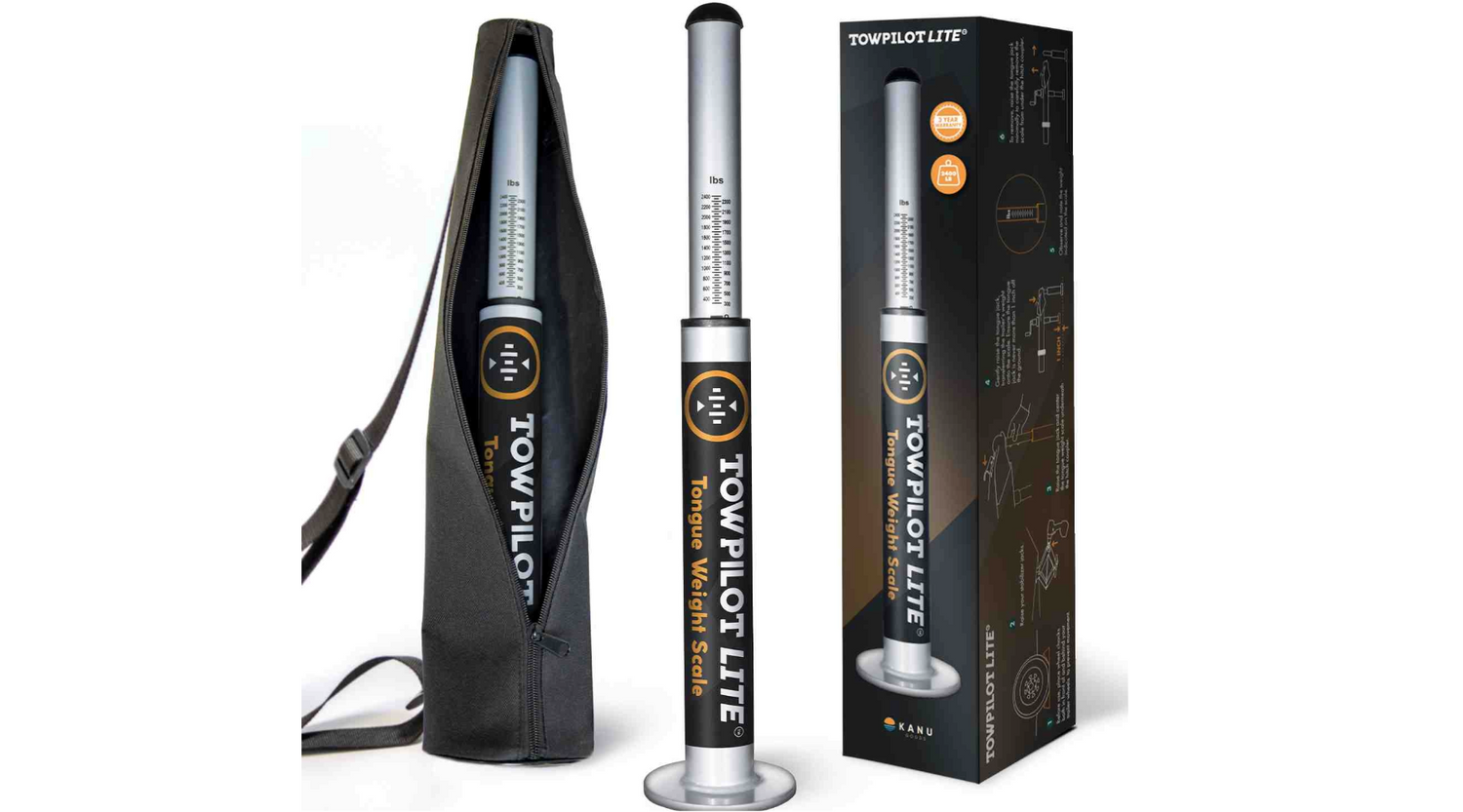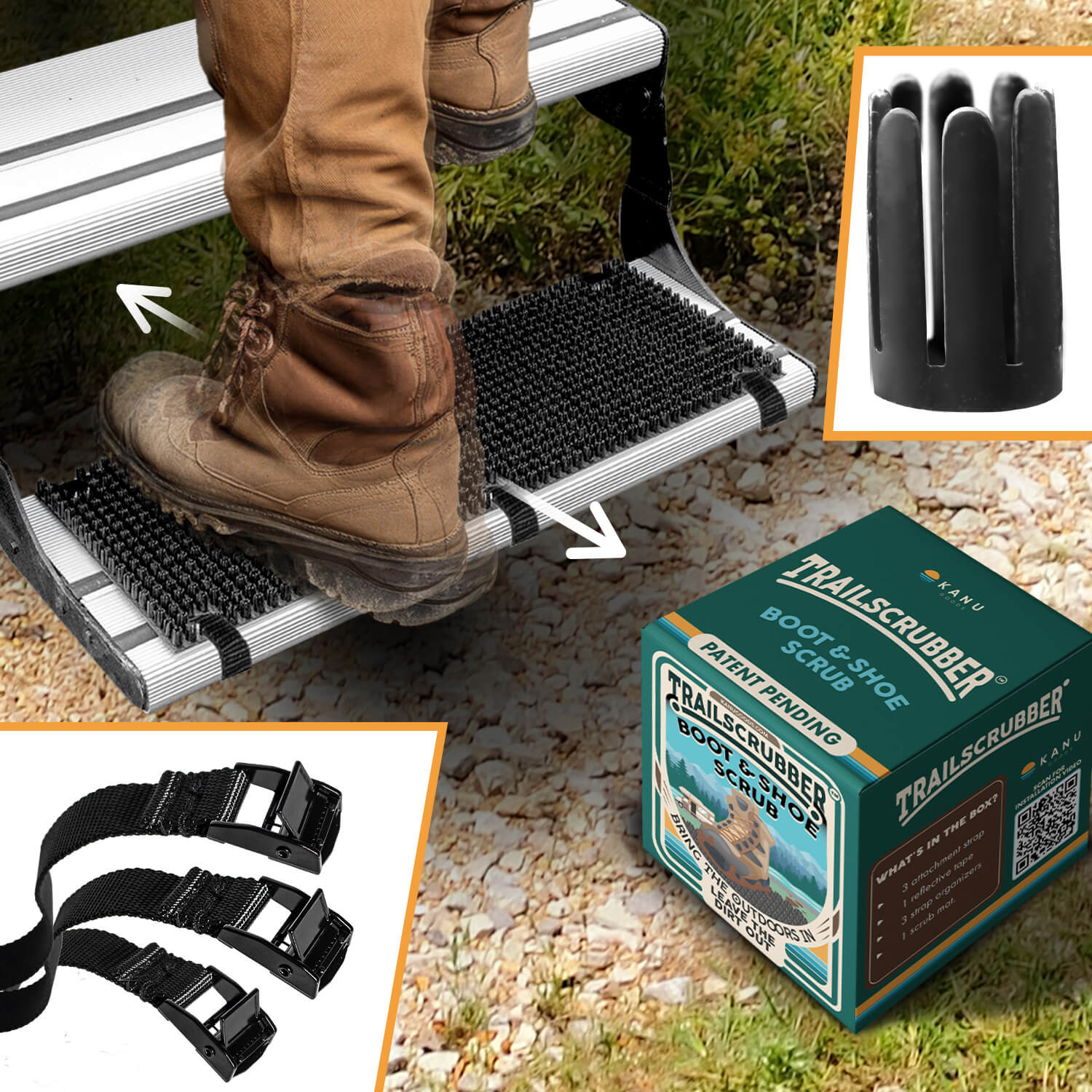Mastering Trailer Tongue Weight with TowPilot Lite: Your Key to Safe Towing
When it comes to towing, ensuring the safety and stability of your trailer is paramount. One crucial aspect that often goes unnoticed is the tongue weight of your trailer. The TowPilot Lite Tongue Weight Scale is designed to help you accurately determine this weight, ensuring a smooth and safe towing experience. In this article, we will guide you through the process of determining the tongue weight and explain why maintaining a tongue weight of 10-15% of your trailer's total gross weight is essential.
Why Tongue Weight Matters
Tongue weight refers to the downward force exerted on the hitch ball by the trailer. If the tongue weight is too low, it can cause the trailer to sway, leading to dangerous driving conditions. On the other hand, if the tongue weight is too high, it can overload the rear of your towing vehicle, affecting handling, braking, and overall safety.
Determining Tongue Weight with TowPilot Lite
Using the TowPilot Lite Tongue Weight Scale is straightforward. Here’s how you can do it:
- Prepare Your Trailer: Ensure your trailer is on a flat, level surface. Disconnect it from the towing vehicle, ensuring it’s securely supported by a jack stand.
- Set Up TowPilot Lite: Place the TowPilot Lite Tongue Weight Scale under the trailer hitch coupler. Make sure it’s centered and stable.
- Lower the Jack: Slowly lower the trailer tongue jack onto the TowPilot Lite until the full weight of the trailer tongue is supported by the scale.
- Read the Measurement: Check the scale to see the tongue weight. The TowPilot Lite provides an accurate reading, allowing you to adjust your load if necessary.
Achieving the Ideal Tongue Weight
The ideal tongue weight should be 10-15% of your trailer’s total gross weight. For example, if your trailer weighs 5,000 pounds, the tongue weight should be between 500 and 750 pounds. Here’s why this range is critical:
- Stability: Proper tongue weight ensures that the trailer remains stable during transit, minimizing the risk of swaying.
- Safety: Adequate tongue weight improves braking performance and handling, making your towing experience safer.
- Fuel Efficiency: Balanced weight distribution can also improve fuel efficiency by reducing drag and improving aerodynamics.
Tips for Adjusting Tongue Weight
- Load Distribution: Properly distribute the weight inside your trailer. Place heavier items towards the front to increase tongue weight, and lighter items towards the back.
- Cargo Arrangement: Avoid overloading one side of the trailer. Evenly distribute weight to maintain balance and stability.
- Regular Checks: Periodically check the tongue weight, especially if you frequently change your trailer’s load. Use the TowPilot Lite for quick and accurate measurements.
Conclusion
Properly managing your trailer’s tongue weight is crucial for safe and efficient towing. The TowPilot Lite Tongue Weight Scale is an indispensable tool that makes this task easy and accurate. By following these guidelines, you can ensure that your trailer is within the safe tongue weight range, providing a secure and enjoyable towing experience.
For more information or to purchase the TowPilot Lite, visit TowPilot Lite Tongue Weight Scale.



0 comments